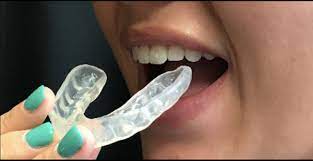Mouthguards, though small and simple in design, provide immense protection for your teeth, gums, and jaw. Whether you're involved in sports, grinding your teeth at night, or recovering from dental work, these protective devices are essential for maintaining oral health. In this article, we explore why Mouthguards are crucial for preventing injuries and ensuring long-term dental safety. Their role in safeguarding your smile is more significant than most people realize, offering a level of protection that can prevent expensive dental bills and long-term damage.
The Essential Role of Mouthguards in Sports Safety:
Mouthguards are often seen as basic pieces of equipment in sports, yet their role in protecting athletes cannot be overstated. In contact sports like football, hockey, and boxing, athletes are at high risk of sustaining dental injuries due to direct impacts. A mouthguard works by cushioning blows to the face and preventing teeth from being knocked out or fractured. This small piece of gear can absorb the shock from collisions, reducing the risk of both tooth and jaw injuries, which could otherwise result in costly medical procedures and long recovery times.
Not only do mouthguards prevent tooth loss, but they also protect against lacerations to the lips, gums, and inner cheek tissues, offering comprehensive oral protection during high-risk activities.
The Protection Against Jaw Injuries:
In addition to protecting teeth, mouthguards play an important role in minimizing the risk of jaw injuries. When you experience an impact to the face, the jaw is often the first area to bear the brunt of the force. This impact can lead to fractures or dislocations of the jaw, as well as pain in the temporomandibular joint (TMJ), which connects your jaw to your skull. A well-fitted mouthguard helps absorb shock and stabilize the jaw, reducing the likelihood of serious injuries.
By providing cushioning and support, mouthguards not only protect teeth but also safeguard the complex structures in your jaw, ensuring that your smile and functionality remain intact after a collision.
How Mouthguards Can Prevent Concussions?
While their primary role is dental protection, mouthguards can also play a role in reducing the risk of concussions. Recent studies have shown that mouthguards may reduce the force of a blow to the head, potentially decreasing the severity of concussive injuries. By acting as a cushion, mouthguards help absorb and redistribute impact forces, offering additional protection to the head and brain.
Though they are not a foolproof method for preventing concussions, their role in protecting the brain cannot be ignored. Athletes who wear mouthguards are likely to experience fewer or less severe head injuries, which can have long-lasting effects on overall health and performance.
Custom-Fit Mouthguards for Superior Protection:
While many off-the-shelf mouthguards offer basic protection, custom-fit options provide the highest level of comfort and safety. Custom mouthguards are designed to fit the unique shape of your teeth, ensuring a snug and comfortable fit that minimizes the risk of slipping during use. This tailored fit allows for optimal shock absorption and ensures that the device remains securely in place during intense physical activity.
Moreover, custom mouthguards are made from high-quality materials that offer superior durability and protection. For individuals who participate in high-contact sports or experience nightly teeth grinding, custom mouthguards offer the most reliable and long-lasting protection available.
Nightguards: Protecting Your Teeth from Grinding:
Mouthguards aren’t just for athletes; they also serve a crucial purpose for those who grind their teeth at night, a condition known as bruxism. Teeth grinding can cause significant damage to your enamel, leading to tooth sensitivity, cracks, and even tooth loss. Wearing a nightguard, a type of mouthguard specifically designed for nighttime use, can help protect your teeth from the damaging effects of grinding.
Nightguards act as a buffer between your upper and lower teeth, preventing them from coming into direct contact during sleep. This small but vital piece of gear can reduce the wear and tear on your teeth, preserving their structure and preventing the need for expensive dental treatments.
The Long-Term Benefits of Wearing a Mouthguard:
The benefits of wearing a mouthguard extend far beyond immediate injury prevention. Consistent use of mouthguards can save you from long-term dental issues, such as tooth loss, cracked teeth, and jaw disorders. Whether you're protecting your smile during sports or preventing damage from teeth grinding, mouthguards serve as a proactive approach to dental care.
By investing in a high-quality, well-fitted mouthguard, you're protecting your teeth and gums from future harm, ultimately saving yourself from expensive dental bills and complex treatments. Over time, mouthguards also reduce the risk of chronic pain, particularly in the jaw and temporomandibular joint, by preventing injury and minimizing stress on these areas.
Conclusion:
Mouthguards may seem like small, simple pieces of gear, but their role in dental and overall health is invaluable. Whether used in sports, to protect against tooth grinding, or to prevent jaw injuries, mouthguards provide big protection in a compact form. Their ability to absorb shock, prevent tooth damage, and even reduce the risk of concussions makes them an essential part of maintaining oral health. For athletes, those who suffer from bruxism, or anyone looking to safeguard their teeth, investing in a quality mouthguard is a wise decision for long-term health and comfort.





Comments